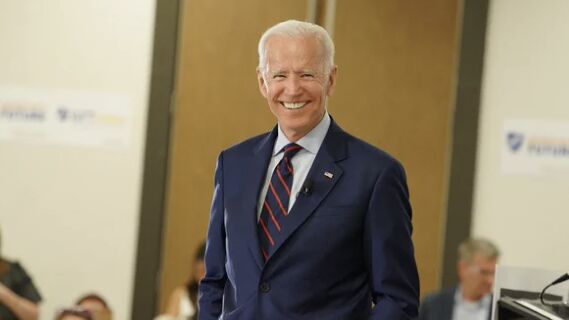Biden Administration Faces Backlash for Proposed Harder English Test for Naturalization, Seen as Unnecessary and Unfair
Biden administration's proposal to make the English test for naturalization harder, arguing that it is unnecessary and redundant, as immigrants already prove their language abilities through daily interactions in the US.
The Biden administration's proposal to make the English test for naturalization harder has been met with criticism, as many argue that it is unnecessary and redundant. Immigrants already prove their language abilities through their daily lives and interactions in the United States, making a language test redundant. Furthermore, the civics test is seen as unfair, as most Americans would fail it and immigrants should not be held to a higher standard than current citizens. Ten years ago, a naturalization ceremony in downtown New York brought together 136 people from 43 countries, including myself. As we took the oath of allegiance to the United States, emotions flooded the room. Even Janet Napolitano, then secretary of homeland security, couldn't hold back tears as she welcomed us as "my fellow citizens."
On that day, I stood alongside individuals from different backgrounds, united by our shared desire to embrace the opportunities America had to offer. During our conversations, we discussed the challenges we had faced on our journey to citizenship. One topic that emerged was the citizenship tests, specifically the civics quiz and the English language test. While some found the civics quiz stressful, others, like myself, saw it as easy.
Surprisingly, the English language test was hardly mentioned, as it was often overlooked by USCIS officers who wanted to expedite the process. In fact, my examiner had told me, "You've made it this far. There's no need to waste our time on this." The Biden administration's proposed changes to the English test fail to recognize what my examiner understood – that a language test is redundant for those who have lived in the United States long enough to qualify for citizenship. The current format allows the officer conducting the naturalization interview to evaluate an applicant's speaking ability through questions they have already answered in their paperwork. The new test, slated to take effect next year, would introduce a speaking section where applicants describe scenes depicted in photographs, such as food or daily activities. While this may seem straightforward, it remains superfluous.
Before even reaching the naturalization test, immigrants are vetted by the ultimate arbiter of American life: the free market. They must find employment, housing, and access to education and healthcare – all with little support from the state. Living in America requires continuous examination, unlike the brief citizenship test at USCIS. Many of us had been on a long journey to obtain our Green Cards and waited years before applying for citizenship. By the time we reached the test stage, our language skills were already fluent, honed through our daily lives and occupations.
Furthermore, America is becoming increasingly diverse, and the government has made efforts to communicate in languages other than English. Multilingual forms and support services are common, and even the USCIS website offers information in 33 languages. With these resources available, the need for an English language test becomes even more questionable. In addition to the language test, the civics test also poses problems. Applicants must correctly answer six out of 10 questions selected from a set of 100. Surveys have shown that most Americans would fail this test. It raises the question of why those seeking to join the ranks of American citizens should be held to a higher standard.
President Joe Biden's administration is not the first to attempt to raise the bar for naturalization. Former President Donald Trump sought a longer civics test with politically-loaded questions, a plan that President Biden rightly scrapped. Given this, the proposal for a tougher English test by the Biden administration seems inexplicable. Over 9 million Green Card holders are eligible for citizenship, yet only a small percentage applies each year. The Biden administration aims to increase this proportion. However, implementing a more challenging English test is unlikely to be the solution.
Instead, a comprehensive strategy is needed to encourage and support eligible individuals on their path to citizenship, ensuring that the obstacles they face are fair and reasonable. In the end, the Biden administration must reconsider its proposal to make the English test for naturalization harder. Immigrants already demonstrate their language abilities through their everyday lives, making the test redundant. Additionally, the civics test should not place a higher standard on immigrants compared to current citizens. As America continues to evolve and embrace its diversity, the path to citizenship should be inclusive, fair, and reflective of the values the country holds dear.




